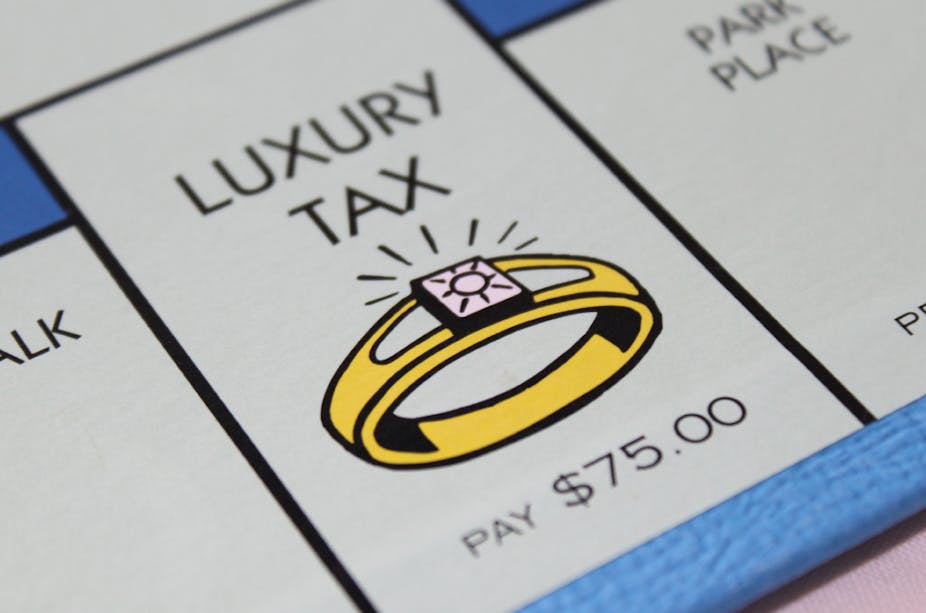The revelation on the BBC and in the Guardian that British bank, HSBC, the second biggest in the world has allegedly helped UK residents sidestep taxes through a Swiss subsidiary should really come as little surprise. More of a shock might be that the solution has been with us for decades.
Tax legislation – and its enforcement in the UK over the past 30 years – has been based on the following school of thought: that the government’s fundamental economic role is to let the unchecked forces of international capital and supply and demand reign supreme. This will, according to the mainstream neo-classical economic theory, allow for the best allocation of limited capital, as well as for the lowest prices and the most efficient output of goods and services.
Providing the state does little except uphold free competition where it can, the theory is that all businesses will evolve to purely serve the consumer in an increasingly stable, prosperous and free society.
Electoral imperatives
This week’s news follows other revelations about what has been happening in Luxembourg for years and the 2013 finding by the Tax Justice Network about UK dominance in the global tax evasion/tax avoidance industry. But it is only because of the desperate need by UK politicians to show that “we’re all in this together”, that this has suddenly captured so much political and public space. We are, of course, less than 100 days before the most important election in a generation.

What continues to be the real and unresolved issue facing UK PLC is that, regardless of tax havens and other tax avoidance opportunities – and even though UK corporate tax rates have fallen three times since 2010, private and public debt and income inequality continues to rise across the country. The political parties might argue the toss about whether wages are edging higher, but this should be only be viewed against the looming risk of deflation to add to our financial concerns.
It all seems very different from the political maturity and consensus ushered in by World War II. Why have the most prominent UK politicians seemingly refused to learn from the way that approach fed a rapid and sustained increase in economic growth, income equality and social progress in the UK between 1945 and the mid-1970s?
Churchill’s plan
Perhaps one of the principal leaders of the post-war UK consensus offers a time-honoured solution to improve the tax take from Britain’s richest individuals and public companies and to finally destroy the notion that tax is “only for little people”. In 1909, Winston Churchill, during the first “Gilded Age” of monopoly capitalism and plutocratic socialism, saw the need for a simpler, fairer and easier tax system to avoid the following blight on social progress.
As he explained:
Land monopoly is not the only monopoly, but it is by far the greatest of monopolies – it is a perpetual monopoly, and it is the mother of all other forms of monopoly. Unearned increments in land are not the only form of unearned or undeserved profit, but they are the principal form of unearned increment, and they are derived from processes which are not merely not beneficial, but positively detrimental to the general public.
As Churchill, Adam Smith, John Stuart Mill and many others have pointed out time and time again, those who own the land skim precious limited capital from everyone else, without any effort or skill. A simple-to-administer land value tax, achieved in Taiwan as part of socially progressive economic policy to transform a broken people in a few years, is today’s solution to recoup this levy on every form of wealth and enterprise in the UK.

Land value tax remains the simplest, fairest, least avoidable and easiest to administer tax on unearned income and wealth, one which the major UK parties will now not even discuss. Surely a better political consensus is needed for a modern Britain than discredited neo-liberalism built on protecting the wealth of the few.
Even the largest banks, such as HSBC, have to compete in a global tax avoidance industry. They are just one of many international financial institutions that have a legal responsibility to maximise profits for their shareholders. One way to make this fairer and to honour the sovereignty of the UK parliament to levy national taxes is land value tax. But where is the voice of Churchill in today’s “Gilded Age”?

